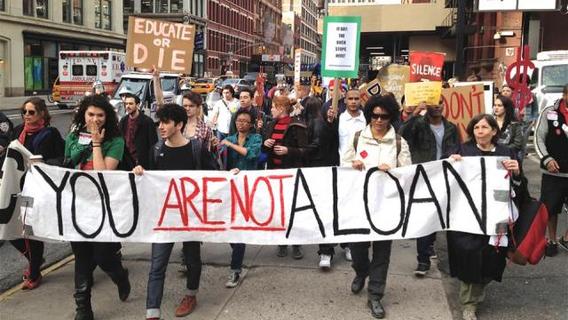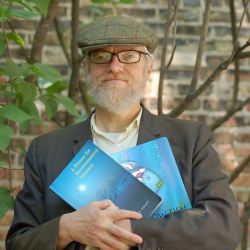This September 17, Rolling Jubilee Will Buy Back--and Abolish--Student Debt
a repost from occupy.com
Since the beginning of the Rolling Jubilee campaign, we’ve wanted to buy and abolish student debt. But most student loans are guaranteed by the federal government, and so they are not available for purchase.
As part of our effort to buy private, unsecured student loans, we talked to Doug St. Peters, the Vice President of Portfolio Management at Sallie Mae, who packages that company’s debt into securities and sells your loans on the secondary market. He confirmed that Sallie Mae does sell its private loans to two large debt buying companies.
He would not name names, and he refused to sell us any of these portfolios when he learned that we intended to abolish the debt.
According to St. Peters, private Sallie Mae loans are sold for as little as 15 cents on the dollar. We repeat: a Vice President at Sallie Mae confirmed that they sell private loans for 15 cents on the dollar.
One goal of the Rolling Jubilee campaign has been to educate ourselves and others about how little our debts are actually worth to the creditors who control our lives. If you have a private Sallie Mae loan, you should know that it may be sold at pennies on the dollar, even as the lender and debt collectors demand full payment, plus interest, from you.
Though we were not able to purchase Sallie Mae loans, we have had some success with other portfolios, and we think those who have been petitioning us to buy student debt will be pleased with the results. We will share all of the details on September 17.
This will not be our last debt buy announcement. We are committed to spending all the funds donated to Rolling Jubilee to purchase and abolish debt. But we are also joining with others to develop long-term plans. Buying and abolishing debt is a powerful but limited tactic, and collective action is needed to address the systemic economic problems that force people into debt for basic needs like education.
Join the Movement
On September 17 we will launch a campaign to amplify ongoing protests against the privatization of our colleges and universities. Our latest debt buy is also an opportunity to promote the common-sense solutions that are being ignored by elected officials from, such as making all 2- and 4-year public colleges tuition free.
We encourage students around the country to join us on the week of September 17 by holding a rally or a debt assembly on your campus. You can learn more about how to host an assembly here. You can also read about a debt assembly held earlier this year by students at Southern Illinois University here.
As always, to our friends and families, we owe you everything. To the financial establishment of the world, we owe you nothing.
Originally published by Strike Debt
- See more at: http://www.occupy.com/article/september-17-rolling-jubilee-will-buy-back-%E2%80%93-and-abolish-%E2%80%93-student-debt#sthash.eanot7TC.dpuf


 RSS Feed
RSS Feed